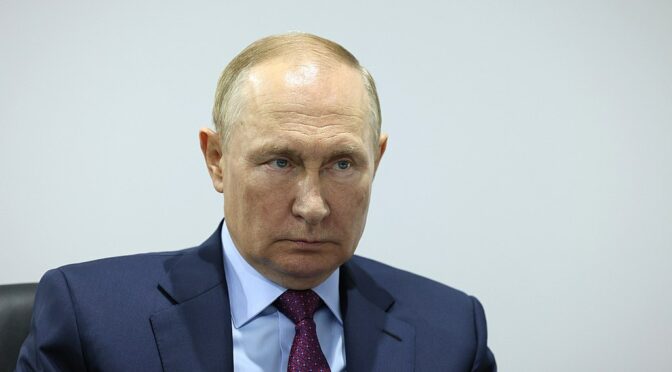Article published in The Daily Telegraph, 3 July 2023. © Richard Kemp
Even if Ukraine’s counter-offensive might be unfolding more slowly than many expected, it is Moscow not Kyiv that is running out of time. Since the operation began weeks ago, little territory has changed hands. That is despite expectations stoked by Kyiv’s allies, who have been eager to show bang for their buck to electorates keenly aware of the cost of the war.
But immediate gratification was always going to be elusive. Even with billions of dollars of Western aid, Ukraine lacks the kind of overwhelming force that allowed the US-led coalition to rapidly crush Iraq in 1991 and 2003. Amid a succession of probing attacks to find weakness in the Russian lines, hopes of a quick breakthrough such as we witnessed in Kharkiv and Kherson last autumn are being displaced by fear that Kyiv’s Nato-equipped forces will be dashed to pieces and Russia will go back onto the offensive.
Indeed, that seems to be Russia’s current strategy: to wear its enemy down against a hard defensive belt prepared over many months and then either force President Zelensky to come to terms or to rampage again into a weakened Ukrainian army.
Putin will very much prefer the first option, because he no longer has confidence that his forces can prevail in large-scale offensive operations. He may also fear escalation by the West, whose support for Ukraine against all expectations sent him into shock. That fear will have been reinforced by a resolution introduced last month in the US Senate that any Russian use of nuclear weapons against Ukraine will be viewed as an attack on Nato itself, requiring an Article V response.
Ukraine’s slow-going offensive, which has already sustained significant casualties in both men and tanks, might seem to be playing into Putin’s plan to wait it out. But how much time does the Russian president actually have, especially after Wagner’s abortive insurrection?
All the indications are that the Russian regime is now far less stable than it was, with elements in Moscow considering their options after Yevgeny Prigozhin attempted the unthinkable with no immediate retribution. And wider disloyalty must be suspected among the military top brass, with the deputy commander of the Ukraine war, General Sergey Surovikin, a Prigozhin ally, seemingly disappeared from the scene. The longer the war drags on without demonstrable Russian success, the greater the chances of regime change.
Russia may have an almost unlimited supply of military recruits, but it does not have unlimited munitions. It has been unable to replace tank losses and struggled to equip recently-mobilised forces, including throwing together new artillery battalions without any guns. Without sufficient industrial capability to manufacture the shells, bullets and missiles it needs, the Kremlin is searching for countries such as South Africa that might be willing to feed its war machine. But Iran remains Moscow’s number one supplier of munitions, with greater incentives now being handed to the ayatollahs to step up production.
China has the ability to throw a lifeline to Moscow. A Russian victory against the West is in Beijing’s interests but, conversely, so is a lengthy war and a weakened Russia with a high level of dependency on China. Tipping these carefully balanced scales against Moscow is the fact that President Xi will be reluctant to provoke greater ire in the US with relations already at an all-time low. It therefore seems unlikely that China will ride to the rescue.
For the moment, at least, Ukraine has a far more sustainable bedrock of international support. Particularly if China is out of the equation when it comes to munitions supply, the Western defence industrial base is vastly superior to everything Moscow can call upon. And beyond relative economic power, defeat for Russia is not seen as defeat for its allies, whereas defeat for Ukraine very much equates to defeat for Nato.
Everything could still change – particularly if America loses its willingness to back Ukraine. And at present Western support is only sufficient to deny Russia any further gains. But it won’t be enough to enable Ukraine to take back its occupied territory. For that, we will need to see a significant increase in military aid, as well as uncompromising efforts to deter and interdict weapons supplies to Moscow, especially from Iran.
Image: Wikimedia Commons

